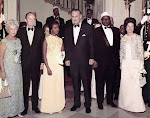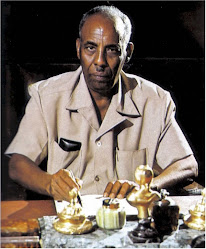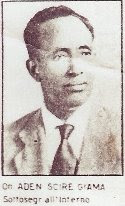ADDIS ABABA, July 16 (Reuters) - Eritrea has reduced its
support for the al Qaeda-allied al Shabaab militant group in
Somalia under international pressure, but still violates U.N.
Security Council resolutions and remains a destabilising
influence, a U.N. report says.
The U.N. Monitoring Group on Somalia and Eritrea, which
investigates violations of an arms embargo on both nations, said
in a report to the Council, seen by Reuters, that it had found
no evidence of direct Eritrean support for al Shabaab in the
last year.
The Council imposed the embargo on the tiny east African
state of Eritrea in 2009 over concerns its government was
providing finance and weapons to al Shabaab - charges Asmara
denied. The Monitoring Group now says that support has
evaporated.
This was "a symptom of growing friction between the
authorities in Asmara and al Shabaab's leadership" as well as
the "result of enhanced international scrutiny, which has made
direct support ... a much riskier undertaking than in the past",
said the report, which is scheduled to be published this week.
"Although it is possible that the Eritrean authorities have
continued to provide financial and other forms of assistance to
(Somali) armed opposition groups, without their activities being
detected, it is the Monitoring Group's assessment that any such
assistance is negligible," the report said.
Instead, the panel presented evidence that Asmara deployed
Ethiopian rebel groups via Somalia, sold weapons to smuggling
rings in Sudan that do business with Palestinian arms dealers,
and imported spare parts for its air force.
The report also alleged that ethnic Afar rebels responsible
for the killing of five European tourists in eastern Ethiopia in
January were hosted and trained in Eritrea, though there was no
evidence the Red Sea state had a direct role in the killings.
It said the escape last year of Djiboutian prisoners of war
held in Eritrea proved Asmara had violated a U.N. resolution
calling on it to disclose information on their whereabouts after
their capture following a border clash in 2008."Eritrea has failed to comply with Security Council
resolutions and remains a destabilizing influence across much of
the region," the report said.The Red Sea state has previously rejected these allegations
and has called for the replacement of the panel's members over
what it calls their bias in favour of its arch-foe Ethiopia.
Eritrean envoys to the AU declined to comment specifically on
the latest U.N. report.
Al Shabaab has controlled much of southern Somalia since
2007, imposing a strict version of Islamic law in areas under
its control. But over the last year it has been forced out of
the Somali capital Mogadishu and other parts of the south by the
coordinated military operations of U.N.-backed African troops.
"TOO EARLY TO LIFT SANCTIONS"
Last year, the Monitoring Group alleged Eritrea was behind a
failed plot to bomb an African Union summit in Ethiopia, had
bankrolled known members of al Shabaab in Kenya and had been
involved in the smuggling of weapons through Sudan and Egypt.
As a result, the Council prolonged the arms embargo and
assets freeze on Eritrea, in addition to a travel ban on some
officials, amid an escalation in operations against al Shabaab
by AU, Kenyan and Ethiopian troops and their Somali allies.
Matthew Bryden, the Monitoring Group's coordinator, told
Reuters that Eritrea was lobbying its allies at the Security
Council to push for a removal of the arms embargo, but he said
other Council members were reluctant to do this.
"We're trying to make the case that any improvement in
Eritrea's conduct is the result of sanctions, and that it's too
early to lift them because of the other violations they have
committed," Bryden said.
Earlier this month, the U.S. Treasury Department issued
sanctions against Colonels Tewolde Habte Negash and Teame
Abraham Goitom, two senior Eritrean military officers Washington
says have worked closely with al Shabaab in the past.
Diplomats at the U.N. say the U.S. move against the two
officers, who have not been subject to full Security Council
sanctions, suggests that Eritrea will face sustained pressure
from the United States and its allies in the Council.
Eritrean officials routinely deny involvement in Somalia and
say the Council embargo decision was based on "fabricated lies"
made up by the U.S. government and its ally Ethiopia.
In a letter obtained by Reuters in December, Eritrean
Foreign Minister Osman Saleh accused the U.N. panel of bias and
urged the Council's chair to establish an "independent,
impartial and credible body".
TAXES, TRAFFICKING AND GOLD REVENUES
European and North American governments have also been
concerned about Eritrea's use of revenues from the taxation of
Eritrean citizens in the diaspora, from human trafficking of
refugees through Sudan and Egypt, and from gold mining.
The Monitoring Group reported that both the British and
German governments had taken action to prevent taxes being
collected from diaspora Eritreans in their territories, in which
Eritrean government agents often use coercion.
"Individuals who refuse to make payment may have their
inheritance rights voided, their family members may be
penalized, and they may be subject to detention or denial of an
exit visa if they return to Eritrea," it said.
Asmara denies coercing its citizens, but insists it has the
right to encourage its diaspora to contribute to the national
budget, including for defence.
The report said Eritrean officials involved in the smuggling
of weapons through Sudan and Egypt were also part of a people
trafficking network that delivered tens of thousands of Eritrean
refugees to Israel between 2009 and 2011.
Refugees interviewed in Israel said they were smuggled
through Sudan by ethnic Rashaida gangs which the Monitoring
Group says work with General Tekle Kiflai, the commander of
Eritrea's western military zone.
Asmara says its fleeing nationals, often escaping unlimited
military conscription, were being lured to leave the country by
sustained American "propaganda".
The panel also urged the U.N. Security Council to consider
measures to regulate Eritrea's opaque gold mining sector, which
it said has generated hundreds of millions of dollars.
The Monitoring Group recommended that the Council either ask
Eritrea to publish its revenues from gold mining or demand that
private gold companies publish all payments to Asmara or pay
into a monitored escrow account.



.jpg)











No comments:
Post a Comment